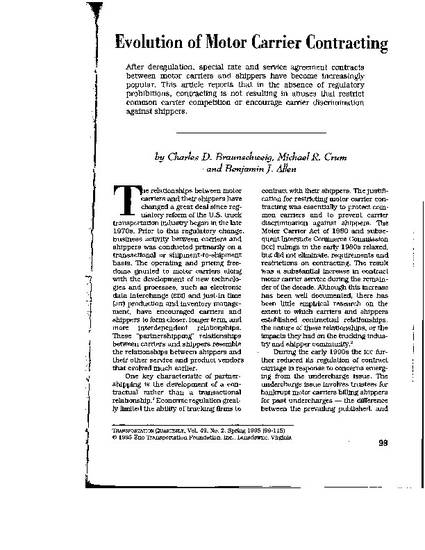
The relationships between motor carriers and their shippers have hanged a great deal since regulatory reform of the U.S. truck transportation industry began in the late 1970s. Prior to this regulatory change, business activity between carriers and shippers was conducted primarily on a transactional or shipment-to-shipment basis. The operating and pricing freedoms granted to motor carriers along with the development of new technologies and processes, such as electronic data interchange (EDI) and just-in-time (JIT) production and inventory management, have encouraged carriers and shippers to form closer, longer term, and more interdependent relationships. These "partnershipping'' relationships between carriers and shippers resemble the relationships between shippers and their other service and product vendors that evolved much earlier.
Available at: http://works.bepress.com/michael_crum/9/

This article is from Transportation Quarterly 49, no. 2 (1995): 99–115. Posted with permission